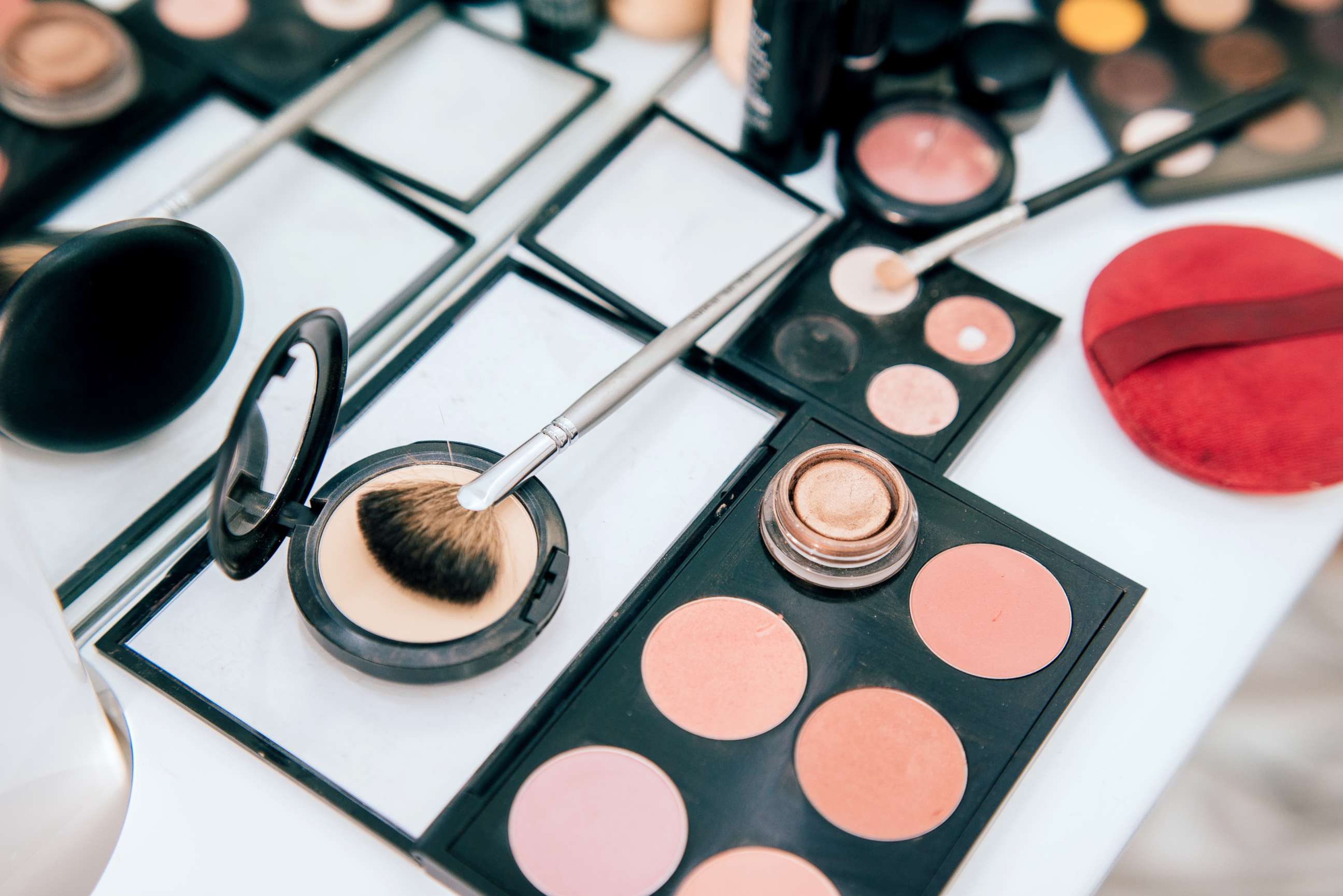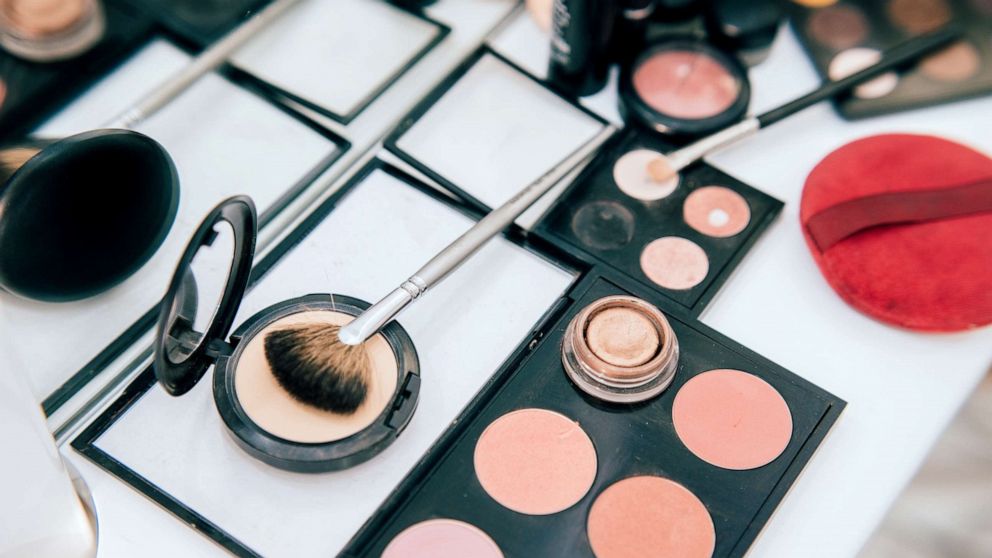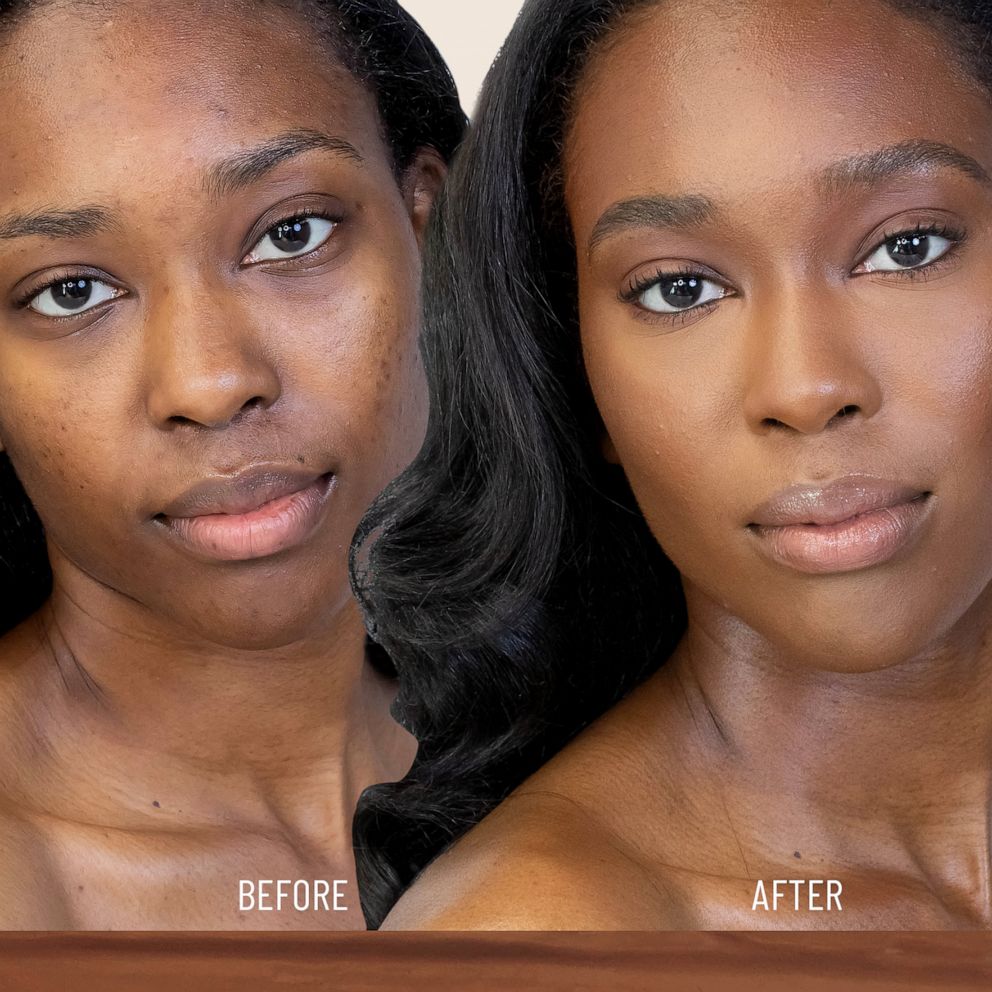What to know about 'forever chemicals,' the potentially toxic PFAS found in some cosmetics
Many cosmetic products sold in the U.S. and Canada contain potentially toxic chemicals known as PFAS, according to a new study.
The journal of Environmental Science & Technology Letters published research on Tuesday that shows how these "forever chemicals" tend to accumulate in our bodies and persist in the environment, and that they're not listed on product ingredient labels even though they're potentially harmful.
PFAS are manmade compounds that are often added to cosmetics such as waterproof mascara or long-wearing lipstick that are designed to stay put.
Out of 231 products screened, foundations (63%), eye products (58%), lip products (55%) and mascaras (47%) were among those containing fluorine, an indicator the product has PFAS.
"We don't know exactly how much is absorbed through our skin," Dr. Whitney Bowe told "Good Morning America." "But we do know that products that are used close to the eyes and on the lips are more likely to be absorbed. ... The skin around the eyes is thin and delicate, and the lips are made up of mucous membranes -- very thin layers that more readily absorb ingredients. And people often lick their lips without knowing, so that's another source of exposure."

Bowe warned that PFAS have been linked to certain types of cancer, thyroid disease, liver damage and reproductive issues, although these health risks have been primarily seen with high exposure levels.
Manufacturers aren't required to identify PFAS on labels, but there are additional ways consumer can protect themselves, one of which, Bowe explained, is avoiding cosmetics that use words like "waterproof" or "long-wear."
"I often tell my patients to turn around their products and look at the ingredient lists. If an ingredient starts with 'perfluor' that's a red flag," Bowe explained. "In this study, most of the contaminated products actually didn't even list the ingredient on the label. So even a savvy consumer would have no way of knowing that a product had PFAS in it."
Following the study's release, the "No PFAS in Cosmetics Act" was introduced in the U.S. House and Senate by Sen. Susan Collins, Sen. Richard Blumenthal, Rep. Debbie Dingell and several others with an aim to ban PFAS in makeup and personal care products.
"Unfortunately, Maine has experienced considerable PFAS contamination, which has not only threatened our water supply, but adversely affected the livelihoods of farmers," Collins said in a statement.
"Americans should be able to trust that the products they are applying to their hair or skin are safe," Collins added. "Our bill would require the FDA to ban the addition of PFAS to cosmetics."







